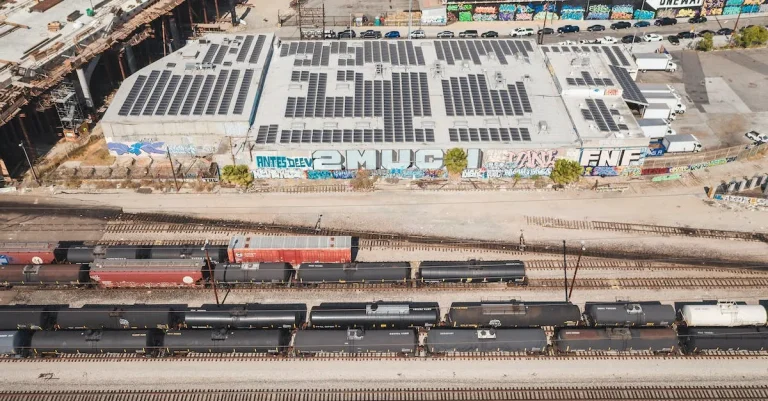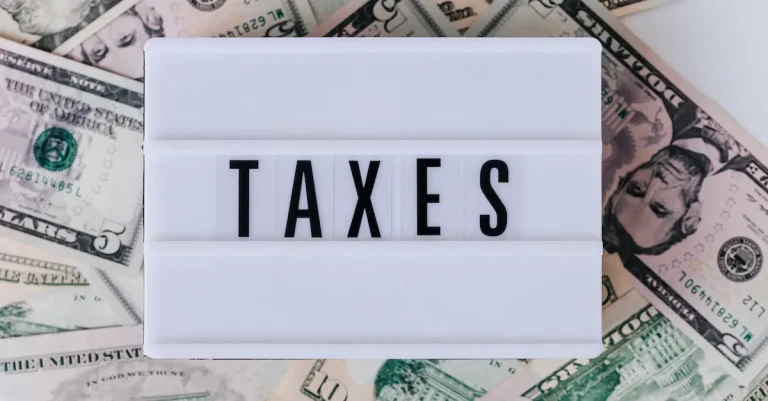Unregistered Vehicles On Private Property In Florida: What You Need To Know
Owning an unregistered vehicle parked on private property in Florida seems straightforward. However, the law has complexities around title transfers, insurance requirements, and allowed locations.
If you’re short on time, here’s a quick answer to your question: In Florida, you can generally keep unregistered, uninsured vehicles on private property with no penalties. But regulations exist around title transfers, parts removal, and inoperable vehicle storage that must be followed.
This comprehensive guide covers everything you need to know about having unregistered vehicles on your land in Florida. You’ll learn key definitions, titling and insurance rules, local ordinances, proper storage guidelines, and qualifications for moving and repairing vehicles.
Definitions of Private Property and Unregistered Vehicles
When discussing the topic of unregistered vehicles on private property in Florida, it is important to have a clear understanding of the terms “private property” and “unregistered vehicles.”
View this post on Instagram
Private Property
Private property refers to land or real estate that is owned by an individual, organization, or entity. In the context of unregistered vehicles, it typically refers to residential properties such as houses, apartments, or condominiums, as well as commercial properties like offices or shopping centers.
Private property owners have the right to control and manage their land, including determining who can access it and how it is used. However, it is important to note that even though it is private property, there are certain regulations and laws that must be followed, especially when it comes to unregistered vehicles.
Unregistered Vehicles
An unregistered vehicle is a motor vehicle that has not been registered with the appropriate government agency, usually the Department of Motor Vehicles (DMV) or its equivalent. The registration process involves obtaining a license plate and paying fees to legally operate the vehicle on public roads.
Unregistered vehicles can include cars, motorcycles, trucks, and other types of motorized vehicles. These vehicles may be in various states of disrepair or non-functioning, and they are typically kept on private property for storage or other purposes.
It is important to note that unregistered vehicles on private property can pose various issues, such as safety hazards, environmental concerns, and aesthetic problems. Therefore, local governments often have regulations in place to address these issues and ensure that private property owners are responsible for the vehicles on their land.
Laws Around Titling and Insurance Requirements
When it comes to unregistered vehicles on private property in Florida, there are specific laws and requirements that you need to be aware of. These laws primarily revolve around titling and insurance. While vehicles on private property may not be subject to the same regulations as those on public roads, there are still legal obligations to consider.
Titling Requirements
In Florida, most motor vehicles must be titled, including those kept on private property. This means that if you have an unregistered vehicle on your private property, you are still required to obtain a title for it.
The process for titling a vehicle in Florida involves submitting the necessary paperwork to the Department of Highway Safety and Motor Vehicles (DHSMV).
It’s important to note that titling a vehicle does not automatically make it legal to operate on public roads. To legally drive a vehicle, you must also register it and obtain the appropriate license plates.
Insurance Requirements
While insurance is not required for unregistered vehicles on private property, it is highly recommended. Even if your vehicle is not being driven, accidents can still occur. Having insurance can protect you financially in case of theft, vandalism, or damage caused by natural disasters.
Additionally, if you decide to take your unregistered vehicle on public roads at any point, you will need to obtain insurance coverage. Florida law requires all motor vehicles with a valid registration to have a minimum amount of insurance coverage, including personal injury protection (PIP) and property damage liability (PDL) coverage.
It’s important to consult with your insurance provider to ensure you have the appropriate coverage for your unregistered vehicle, whether it is kept solely on private property or if you plan to eventually drive it on public roads.
Penalties for Non-Compliance
Failure to comply with the titling and insurance requirements for unregistered vehicles on private property in Florida can result in penalties. If you are found to be in violation of these laws, you could face fines, license suspension, or other legal consequences.
It’s always best to stay on the right side of the law and ensure that your unregistered vehicle is properly titled and insured, even if it is only being kept on private property.
Voir cette publication sur Instagram
Zoning Laws and Local Ordinances
When it comes to unregistered vehicles on private property in Florida, zoning laws and local ordinances play a crucial role in determining what is allowed. Zoning laws are regulations that control the use of land and the type of structures that can be built in specific areas.
Local ordinances, on the other hand, are laws passed by cities or counties that govern various aspects of community life, including property use and maintenance.
Zoning laws and vehicle storage
Many zoning laws in Florida have specific provisions regarding the storage of unregistered vehicles on private property. These laws are in place to maintain the aesthetics of neighborhoods and prevent the accumulation of junk or abandoned vehicles.
Zoning regulations may restrict the storage of unregistered vehicles to designated areas or require them to be stored out of sight from public view.
It’s important to note that the definition of an unregistered vehicle may vary depending on the local jurisdiction. Some areas may consider any vehicle without a valid license plate to be unregistered, while others may have additional criteria, such as vehicles that are not in working condition or are missing essential components.
Local ordinances and fines
Local ordinances in Florida often include provisions for penalties and fines for violations related to unregistered vehicles on private property. These fines can vary depending on the severity of the violation and may increase for repeat offenses.
Property owners who fail to comply with zoning regulations or local ordinances regarding unregistered vehicles may face fines, legal action, or even the removal of the vehicles by the authorities.
Checking local regulations
Before storing unregistered vehicles on private property in Florida, it is essential to check the zoning laws and local ordinances specific to your area. This can typically be done by contacting the local planning department or code enforcement office.
They will be able to provide information on any restrictions or requirements regarding the storage of unregistered vehicles on private property.
By understanding and following the zoning laws and local ordinances, you can ensure that you are in compliance with the regulations while storing unregistered vehicles on private property in Florida.
Guidelines for Storage Condition and Location
When it comes to storing unregistered vehicles on private property in Florida, there are certain guidelines that need to be followed regarding the condition and location of the vehicles. These guidelines are in place to ensure safety, prevent environmental hazards, and maintain the aesthetic appeal of the neighborhood.
Condition of the Vehicle
Unregistered vehicles stored on private property must be in a non-operating condition. This means that the vehicle should not be able to start or be driven. It should be securely parked and unable to move, reducing the risk of accidents or unauthorized use.
Additionally, the vehicle should not be leaking fluids such as oil, gasoline, or coolant, as this can pose a threat to the environment.
Storage Location
The location of the stored unregistered vehicle is also important. In Florida, vehicles should be stored in an area that is not visible from the street or neighboring properties. This helps maintain the aesthetic appeal of the neighborhood and prevents the accumulation of junk or unsightly vehicles.
If the vehicle is stored in a garage, it should be kept closed to prevent visibility from the outside. If the vehicle is stored in an open area, it should be screened or hidden from view using fences or landscaping.
It is important to note that different counties or homeowner associations may have specific regulations regarding the storage of unregistered vehicles on private property. It is recommended to check with the local authorities or consult the applicable rules and regulations for your specific area.
View this post on Instagram
Rules for Moving and Repairing Unregistered Vehicles
When it comes to unregistered vehicles on private property in Florida, there are certain rules and regulations that need to be followed, especially when it comes to moving and repairing these vehicles. Here are some important things you need to know:
1. Moving Unregistered Vehicles
If you have an unregistered vehicle on your private property and you need to move it, there are a few things to keep in mind. First, make sure you have the proper equipment and tools to safely move the vehicle. If the vehicle is inoperable, you may need to hire a professional tow truck to move it.
It’s important to follow all local laws and regulations regarding the transportation of unregistered vehicles.
2. Repairing Unregistered Vehicles
If you plan on repairing an unregistered vehicle on your private property, there are a few guidelines to follow. First, make sure you have the necessary permits and licenses to perform repairs. In some cases, you may need to obtain a temporary repair permit from your local Department of Motor Vehicles (DMV).
Additionally, it’s important to ensure that the repairs are not causing any harm to the environment or violating any zoning regulations.
3. Storage of Unregistered Vehicles
When storing unregistered vehicles on private property, it’s essential to comply with local regulations. Some cities or counties may have restrictions on the number of unregistered vehicles that can be stored on a property or the amount of time they can be stored.
It’s best to check with your local government or zoning office to understand the specific rules in your area.
4. Potential Consequences
Failure to comply with the rules and regulations regarding moving and repairing unregistered vehicles on private property in Florida can result in penalties and fines. These consequences can vary depending on the specific violation and can range from a warning or citation to more severe penalties.
It’s important to note that this information is provided as a general guide and may not cover all specific situations. For more detailed information, it’s advisable to consult with local authorities or legal professionals.
Conclusion
In summary, Florida allows unregistered vehicles to be kept on private property with few restrictions in most cases. However, you must follow regulations for title transfers, insurance, storage condition, location, and repair work performed. As long as inoperable vehicles are properly stored with no public safety hazard, Florida offers great flexibility for project car owners to store and work on them on private land.








